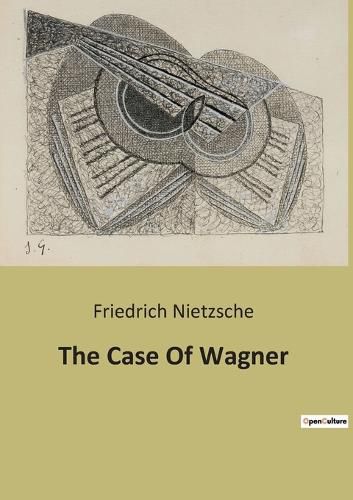Readings Newsletter
Become a Readings Member to make your shopping experience even easier.
Sign in or sign up for free!
You’re not far away from qualifying for FREE standard shipping within Australia
You’ve qualified for FREE standard shipping within Australia
The cart is loading…






This title is printed to order. This book may have been self-published. If so, we cannot guarantee the quality of the content. In the main most books will have gone through the editing process however some may not. We therefore suggest that you be aware of this before ordering this book. If in doubt check either the author or publisher’s details as we are unable to accept any returns unless they are faulty. Please contact us if you have any questions.
" Nietzsche wrote the rough draft of "The Case of Wagner" in Turin, during the month of May 1888; he completed it in Sils Maria towards the end of June of the same year, and it was published in the following autumn. "Nietzsche contra Wagner" was written about the middle of December 1888; but, although it was printed and corrected before the New Year, it was not published until long afterwards owing to Nietzsche's complete breakdown in the first days of 1889. In reading these two essays we are apt to be deceived, by their virulent and forcible tone, into believing that the whole matter is a mere cover for hidden fire, -a mere blind of aesthetic discussion concealing a deep and implacable personal feud which demands and will have vengeance. In spite of all that has been said to the contrary, many people still hold this view of the two little works before us; and, as the actual facts are not accessible to every one, and rumours are more easily believed than verified, the error of supposing that these pamphlets were dictated by personal animosity, and even by Nietzsche's envy of Wagner in his glory, seems to be a pretty common one. Another very general error is to suppose that the point at issue here is not one concerning music at all, but concerning religion. It is taken for granted that the aspirations, the particular quality, the influence, and the method of an art like music, are matters quite distinct from the values and the conditions prevailing in the culture with which it is in harmony, and that however many Christian elements may be discovered in Wagnerian texts, Nietzsche had no right to raise aesthetic objections because he happened to entertain the extraordinary view that these Christian elements had also found their way into Wagnerian music."
$9.00 standard shipping within Australia
FREE standard shipping within Australia for orders over $100.00
Express & International shipping calculated at checkout
This title is printed to order. This book may have been self-published. If so, we cannot guarantee the quality of the content. In the main most books will have gone through the editing process however some may not. We therefore suggest that you be aware of this before ordering this book. If in doubt check either the author or publisher’s details as we are unable to accept any returns unless they are faulty. Please contact us if you have any questions.
" Nietzsche wrote the rough draft of "The Case of Wagner" in Turin, during the month of May 1888; he completed it in Sils Maria towards the end of June of the same year, and it was published in the following autumn. "Nietzsche contra Wagner" was written about the middle of December 1888; but, although it was printed and corrected before the New Year, it was not published until long afterwards owing to Nietzsche's complete breakdown in the first days of 1889. In reading these two essays we are apt to be deceived, by their virulent and forcible tone, into believing that the whole matter is a mere cover for hidden fire, -a mere blind of aesthetic discussion concealing a deep and implacable personal feud which demands and will have vengeance. In spite of all that has been said to the contrary, many people still hold this view of the two little works before us; and, as the actual facts are not accessible to every one, and rumours are more easily believed than verified, the error of supposing that these pamphlets were dictated by personal animosity, and even by Nietzsche's envy of Wagner in his glory, seems to be a pretty common one. Another very general error is to suppose that the point at issue here is not one concerning music at all, but concerning religion. It is taken for granted that the aspirations, the particular quality, the influence, and the method of an art like music, are matters quite distinct from the values and the conditions prevailing in the culture with which it is in harmony, and that however many Christian elements may be discovered in Wagnerian texts, Nietzsche had no right to raise aesthetic objections because he happened to entertain the extraordinary view that these Christian elements had also found their way into Wagnerian music."